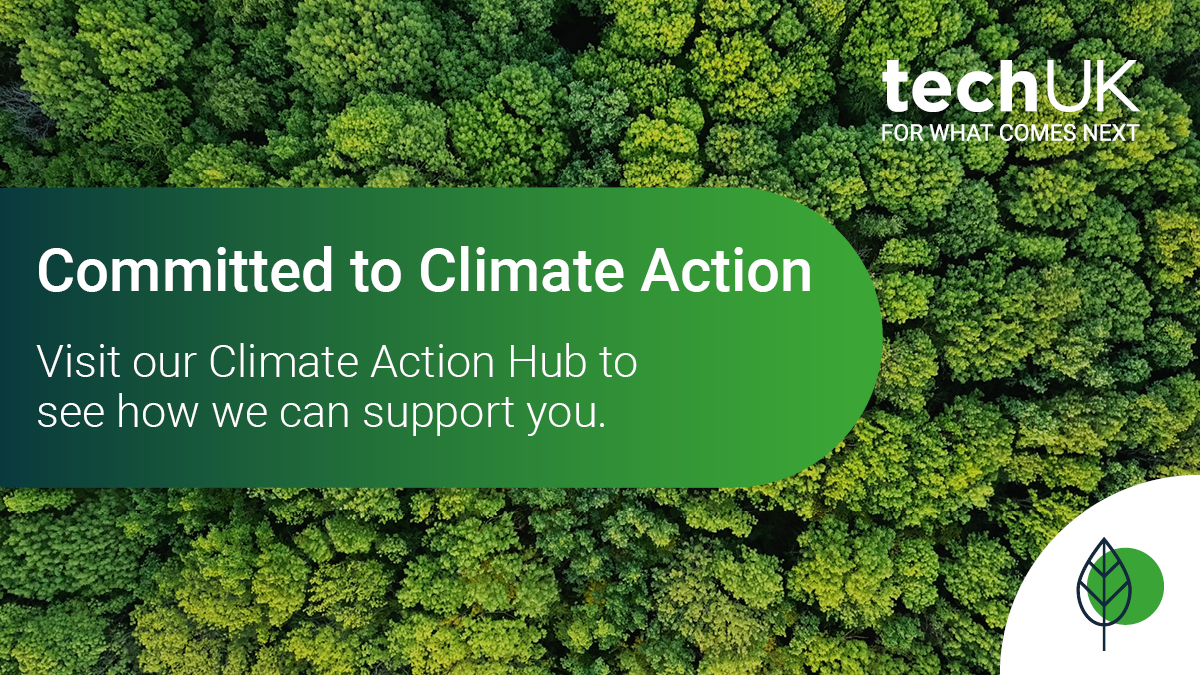Adopt cloud and improve your sustainability (Guest Blog from Shaping Cloud)
 Author: Helen Gerling, CEO of Shaping Cloud Ltd
Author: Helen Gerling, CEO of Shaping Cloud Ltd Twitter | Linkedin
What do we mean by ‘sustainability’?
Demand for sustainability has grown not only due to climate concerns, but stakeholder expectations. Today, organisations are expected to take a progressive and active approach to reduce their carbon footprint and improve their sustainability.
We can see how the desire and importance of sustainability have progressed over the last four years as we look towards the Institute of Workplace and Facilities Management Sustainability Survey. In 2018, 66 per cent of respondents believed that sustainability was ‘very’ or ‘extremely important’. Fast forward to today (2022) and we see that this percentage has increased by 47 per cent to 95 per cent.
But how do you determine ‘sustainability’ and what does a sustainable future look like for your organisation?
There are three main ways organisations approach answering this question:
- The UN takes the widest, and a laudable, approach in its view on sustainability with its established 17 sustainable development goals.
- The responsible, forward-looking organisation would consider its contribution to the depletion of all natural or physical resources and seek to minimise its impact.
- The baseline expectation of UK businesses, small and large, is to make a pledge and a plan to reduce their emissions to ‘net zero’ by 2050.
With increased stakeholder expectations for carbon management, and pressure from the government with newly implemented legislation, organisations will need to prioritise reducing their impact on our environment.
One easy way to do that is the use of hyper-scale cloud services, with the added benefit of freeing up time and resources tied up in on-premises data centres and owned/ leased infrastructure.
Hyper-scale cloud sustainability
As we’d like to expect, the size of the main global hyperscale cloud providers (Amazon, Google, Microsoft) means that they come under increased scrutiny when it comes to their social and environmental impact. The benefit to customers is that they each have a wealth of initiatives in these areas. For instance, Microsoft maps its commitments to the UN Sustainable Development goals. In using these services instead of continually investing in our own datacentres, an organisation can offload some of its effort towards achievement of sustainable goals to the cloud provider.
In January of this year (2022), technology research and consulting firm Gartner released a post predicting that in no less than three years’ time hyper-scalers' carbon emissions will be a top-three criterion in driving cloud purchase decisions.
As hyperscale cloud providers continue to ‘aggressively invest’ in sustainable cloud operations and delivery, tools have quickly become available to help organisations. With these tools, organisations can gain transparency into the carbon impact of their cloud usage and gain an improved ability to report on Scope 3 emissions, as is increasingly expected. More specifically, sustainability tools provide the opportunity to track both direct and indirect greenhouse gas emissions, as well as the emissions avoided through the cloud provider’s overall data centre efficiency.
Improve your sustainability through using cloud
By migrating from your on-premises datacentres to the cloud, your organisation can consume responsibly and evidence the emissions reduction in sustainability reports. Furthermore, with the increased issues of attaining infrastructure over the last two years due to resource shortages, factory closures and shipping backlogs, adopting cloud can also minimise infrastructure logistics and supply chain burden.
Of course, architecting well for cloud can also mean even further efficient consumption and the hyperscalers have all the tools to enable you to precisely use only what you need when you need it.
Word to the wise: consider sustainability beyond the current and trending hot topic of net-zero too.
techUK - Committed to Climate Action
Digital transformation is critical to the decarbonisation journey of organisations in every sector. Across supply chains and sectors, industries are converging with tech partners to find innovations that reduce carbon emissions and unlock efficiencies that drive down energy use. techUK focuses on the application of emerging technologies and data-driven decision making in traditional forms of infrastructure to deliver innovative environmental outcomes. For more information on our Climate, Environment and Sustainability Programme, please visit our Climate Action Hub and click ‘contact us’.


